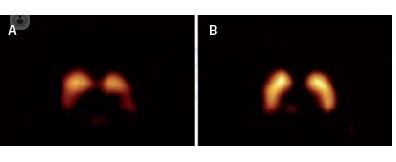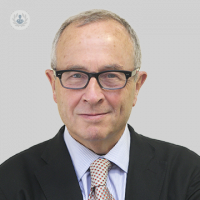Parkinson's disease and movement disorders
Written by:Anxiety, fatigue or stress increases the symptoms of the main movement disorders
The  movement disorders include a wide range of motor control alterations in the specialty of neurology . We distinguish two main groups: those characterized by slowness of movement and often accompanied by increased muscle tone (akinete rigid syndromes) and characterized by the presence of abnormal involuntary movements (also called hyperkinesias or dyskinesias). The most important is akinetic syndrome is Parkinson's disease and its variants, which are often called parkinsonism or atypical parkinsonism. Among the hyperkinesias is noteworthy tremor, dystonia, the chorea, tics, and myoclonus. The impact of movement disorders have on the quality of life of patients is highly variable and depend largely on the cause and intensity. In some it is mild. In others they cause a progressive deterioration that is associated with a significant impairment of quality of life affected.
movement disorders include a wide range of motor control alterations in the specialty of neurology . We distinguish two main groups: those characterized by slowness of movement and often accompanied by increased muscle tone (akinete rigid syndromes) and characterized by the presence of abnormal involuntary movements (also called hyperkinesias or dyskinesias). The most important is akinetic syndrome is Parkinson's disease and its variants, which are often called parkinsonism or atypical parkinsonism. Among the hyperkinesias is noteworthy tremor, dystonia, the chorea, tics, and myoclonus. The impact of movement disorders have on the quality of life of patients is highly variable and depend largely on the cause and intensity. In some it is mild. In others they cause a progressive deterioration that is associated with a significant impairment of quality of life affected.
Frequent causes and symptoms
The classic symptoms of Parkinson's disease include tremor, slowness of movement and muscle stiffness. It is not uncommon to be associated with constipation, loss of smell and mental depression and nightmares. Other less common parkinsonism associated with falls and difficulty in moving the eyes (progressive supranuclear palsy) or decreases in blood pressure and significant difficulty urinating (MSA). Dystonias cause muscular contractions, usually maintained and can affect any body area. Sometimes, especially in infancy, they are widespread.
In adults are more limited and cause torticollis, spasms clerk, involuntary closing of the eyes or difficulty speaking, depending on the area of the body that alter. Tics are repetitive and irregular movements or sounds that can affect various muscle groups. Patients usually present an urgent sense of need to move before the tic. Increase in situations of anxiety or fatigue but can decrease the acts that require certain concentration.
The patient may voluntarily suppress them for a few seconds or minutes. The most important disease is associated to tics of Tourette syndrome. Over time the motor and vocal tics of efermedad tend to improve. Essential tremor is the most common cause of tremor. It may begin in adolescence but in general its onset is later. Slowly progresses in severity but does not alter the motor running or agility. The tremor is typical of action, ie it manifests itself when performing a motor act as picking up a glass of water or a pen to write; subsides with rest of the limb. Sometimes improved with taking alcohol and gets worse with stress and intake of coffee and is often hereditary. Movement disorders are often of unknown cause and are then called primary or idiopathic. These cases include genetic causes, they are a minority. Other movement disorders are known or secondary cause. Causes of secondary cases include exposure to a toxic, head injuries, those caused by certain medications, infections of the nervous system or hydrocephalus. Identify secondary cases it is of great importance because by eliminating the cause is possible to cure the disease.
Treatment
The management of various movement disorders requires first and foremost a proper diagnosis. In many cases, the experience of experience in the field of movement disorders neurologist is to catalog and propose appropriate treatment, as there are no specific laboratory tests in most cases. Recently developed laboratory tests or images that are useful. The DAT SPECT allows, for example, display brain dopamine and exclude Parkinson if normal. We also have numerous laboratory tests that can establish an accurate diagnosis. Some are genetic and others to diagnose infections or metabolic disorder and other. The treatment of movement disorders depends largely on the type of anomalous motion and its severity, and naturally their cause.


